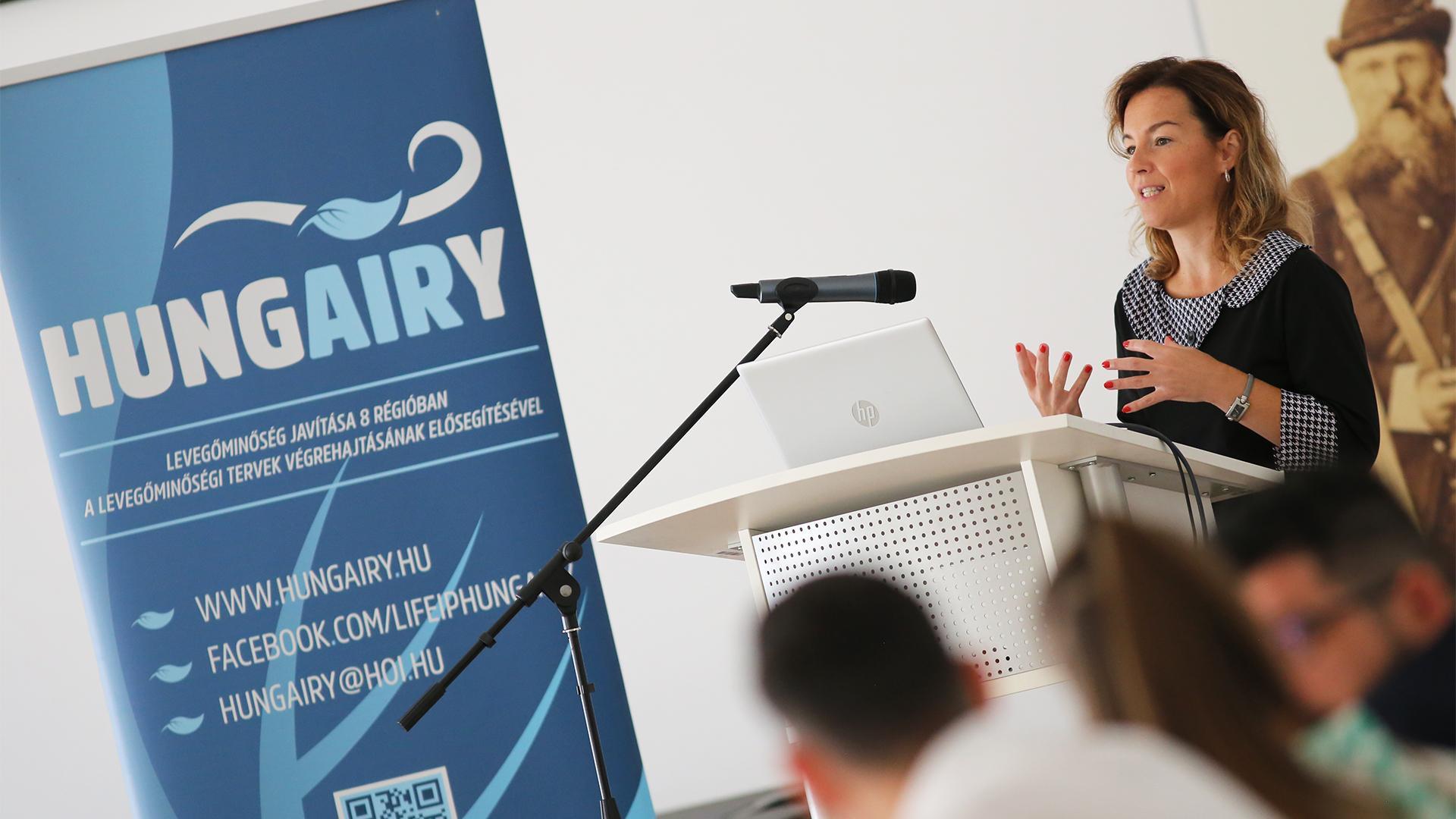Roundtable discussion on air quality plans

Herman Ottó Institute Nonprofit Ltd., the coordinator of the HungAIRy LIFE integrated project, organised a roundtable discussion on 20 September 2023 to discuss the experiences and current challenges related to the revision of air quality plans for the municipalities involved in the project, and in some cases, the air quality zones encompassing these municipalities.
The meeting, held at the Herman Ottó Conference Centre, was attended by staff from the county government offices and project partner municipalities working on air quality plans. In her opening speech, Nikoletta Keszthelyi, Deputy State Secretary for Environment at the Hungarian Ministry of Energy, addresses the current revision of the EU directives on ambient air quality. She highlighted that the proposal includes lower limit values for concentrations of air pollutants, aligning more closely with the ambitious targets set by the World Health Organisation's 2021 targets. The new draft directive will also reformulate the designation of air quality zones and emphasize the importance of addressing cross-border pollution and coordinating emission reduction measures between neighbouring countries.
Ildikó Babcsány, Head of the Eco-manager Knowledge Centre established under the HungAIRy project, presented the project’s achievements to date. In her presentation she highlighted that, thanks to the effective cooperation between county government office experts and the eco-managers of partner municipalities, air quality plans have been renewed twice in most areas. To estimate the impact of measures on air quality, the HungAIRy project has developed a modelling tool (ATMO-Plan) to support decision-making in planning measures to reduce emissions from transport and residential sources.
Zita Ferenczi, an expert from the National Meteorological Service, provided usefulinformation and online applications for the review of air quality plans.
During the roundtable discussion that followed the presentations, eco-managers and county government officials shared their success stories and challenges in reviewing air quality plans. In the informal discussion, experts formulated several joint suggestions including making the structure of air quality plans more consistent, simplifying the process of obtaining data for revisions and promoting the content of air quality plans to the public. The next review is due by the end of 2024, and the adopted Air Quality Plans are available on the Ministry of Energy's website.
Concentrations of key air pollutants have been on a downward trend over the past decades, but the expected reduction in air quality limit values and the adverse health impacts of air pollution make local and national measures to improve air quality a priority.
Source: Herman Ottó Institute Nonprofit Ltd.